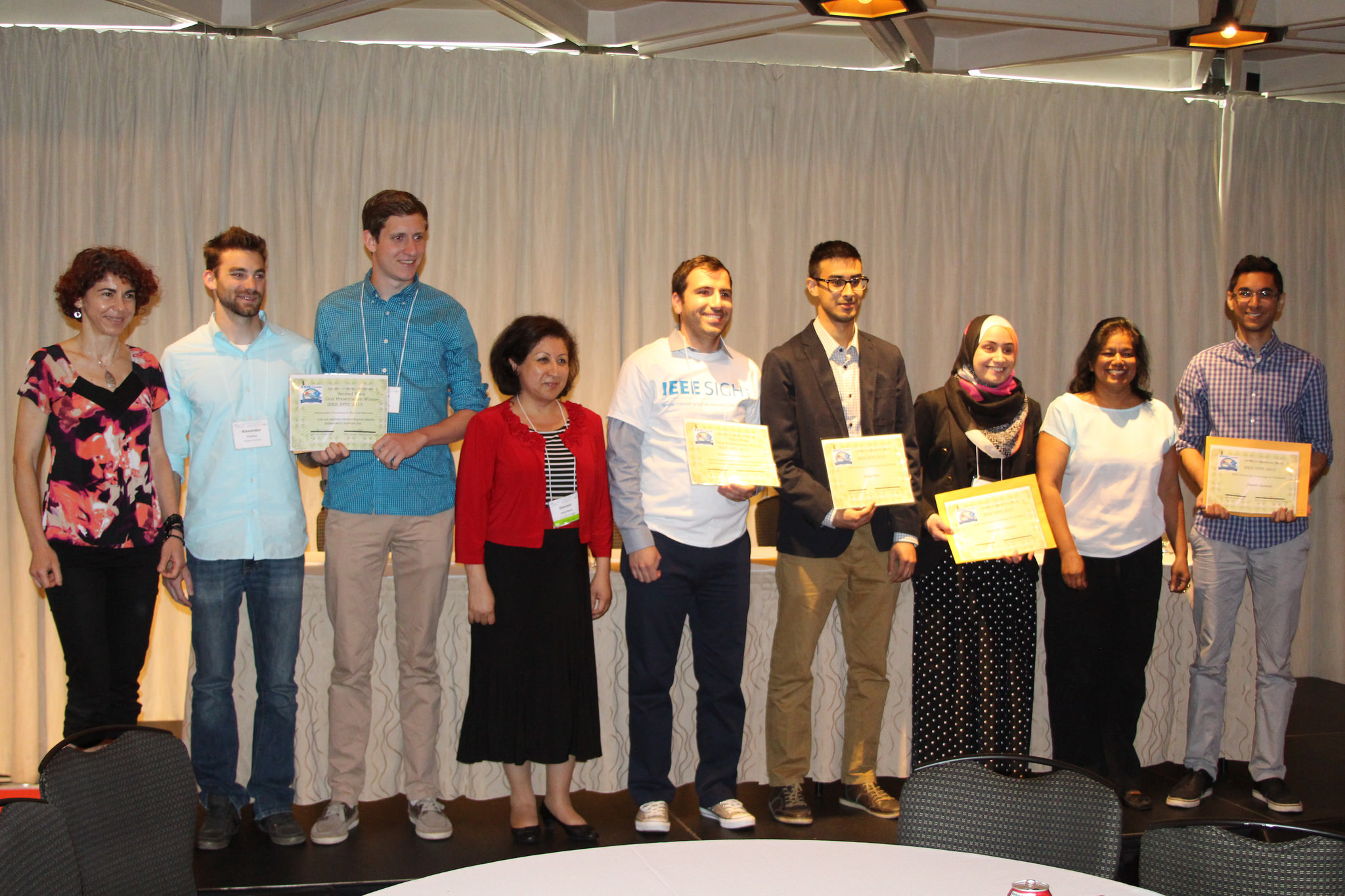The 3rd IEEE Canada International Humanitarian Technology Conference (IHTC 2017) – Student Design Competition

Over the years, the Student Design Competition has become an integral part of the IHTC Annual Conference. It is an excellent opportunity for Engineering students to present their humanitarian design activity to the professional community.
The Competition is ideal for undergraduate students to present their capstone/fourth year thesis projects or their work during internships/co-ops. This Session covers all key areas of Humanitarian application engineering.
Click here to download the Flyer
Interested in Participating? Please Read the Following Carefully
- This session is exclusively for undergraduate students. If you are a first-semester graduate student, you may still present work that you did as an undergraduate student. However, more senior graduate students are expected to participate in the professional meeting. Non-compliant submissions will be rejected.
- The deadline for abstract submissions is April 30th, 2017. Our goal is to get as many students involved in this as possible. However, the deadline is so tight with regards to scheduling that we will not be able to accept any late abstracts. Please discuss abstract submission with your advisor(s) well before the deadline!
- Make sure that your advisor/supervisor/co-authors all sign off on your abstract before submission; all submitted abstracts become public information, so it is your responsibility to make sure that there are no confidentiality issues.
- The submission of applications for participation in the award individually or in the form of a group of several students (Max of 3 students).
- The project has not been published previously, and is not under consideration (in whole or in part) for publication elsewhere.
- The project presented is a product / process / service (hardware/software) serving the humanitarian; it is possible to employ them
- Please note that this is a different session than the IEEE IHTC paper sessions.
Topical Areas
- As a part of the submission process, you will be asked to first pick a topic area from a list of 10 available research areas:
- Poverty alleviation, achieving food security and improved nutrition and promote sustainable agriculture.
- Effective management of refugees, (re)settlements and integration
- Ensuring healthy lives and promote well-being for all at all ages
- Quality education and promote lifelong learning opportunities for all
- Sustainable management of water and sanitation for all
- Affordable, reliable, sustainable and modern energy for all
- Making cities and human settlements safe, resilient and sustainable
- Disaster mitigation, management, relief, and recovery
- Combating climate change and its impacts
- Social impacts of technology
- Data and personal security humanitarian technology
- Humanitarian and educational technologies
- Community engagement
- If you have any question about which topical area is best for your poster, please consult with your advisor/supervisor/co-authors. For topic selection, focus on the nature of the work that was done, not on pie-in-the-sky applications.
- Only if no topical area seems particularly appropriate for capturing a substantial portion of your work, you may submit it to the “General” topic area as last resort.
- It should also be noted that all posters could be moved to a different topic area by the session organizers if it is deemed appropriate based on the abstract of the work submitted.
Judging and Awards
Each project will be judged by a panel of typically 3 professional members from IEEE HITC Committee. You must be present your project to the judges during conference period in order to qualify for the project Competition. Awards will given to the top projects at the end of the HITC Conference. So, plan your flight home from Toronto, ON carefully if you plan to present a project.
Judging Criteria:
- Originality: if the idea is good or not (20%)
- Complexity: we would like to have simple and easy product (to design, to maintain and to us (20%)
- Usefulness of the product: how the idea is useful for the population (20%)
- Clarity of link to humanity (20%)
- Presentation skills (20%)
Why should you participate?
- If you are interested in pursuing graduate school in electric engineering, the undergraduate project session is a great opportunity to meet faculty from a large variety of engineering graduate programs from around the country.
- Likewise, if you are looking for an industrial job, this is also a great addition to your resume, demonstrating that you have been active beyond the classroom.
Interested in Becoming a Judge?
- The Undergraduate Student Project Competition is always looking to recruit judges. If you are a Professional Member of IEEE looking for an opportunity to volunteer at the Annual IHTC Conference, please contact. Volunteers need to be present during conference days July 20-22th, 2017. Volunteers should be comfortable judging scientific projects.
Questions? Contact:
Salam Ismaeel, PhD, PEng
Undergraduate Student Project Session Coordinator
Ryerson University
Email: salam.ismaeel@ieee.org
